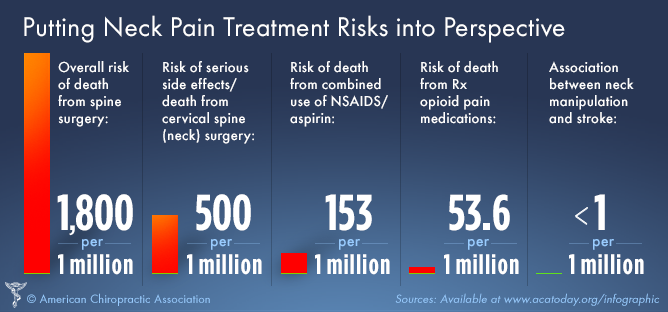Take Care Of Your Back By Discovering The Influence Of Your Diet Plan On Pain Management-- Figure Out Which Foods Can Provide Relief And Which Ones To Steer Clear Of
Take Care Of Your Back By Discovering The Influence Of Your Diet Plan On Pain Management-- Figure Out Which Foods Can Provide Relief And Which Ones To Steer Clear Of
Blog Article
Post Writer-Whitley Guldborg
When it pertains to handling your neck and back pain, the food choices you make can considerably impact exactly how you really feel each day. Think of being able to ease your discomfort just by adjusting what you eat. By recognizing the duty of nutrition in neck and back pain management and recognizing which foods to incorporate or stay away from, you can take aggressive steps in the direction of a healthier and much more comfortable way of life. The link in between nourishment and back health is a lot more extensive than you might understand-- allow's explore just how certain foods can either calm or aggravate your back pain.
Value of Nutrition in Neck And Back Pain
Nourishment plays a crucial duty in taking care of pain in the back. Your diet plan can significantly affect inflammation levels and total pain levels in your back. Consuming a well balanced diet plan abundant in nutrients like vitamins D and K, calcium, magnesium, and omega-3 fatty acids can help reduce inflammation and reinforce bones, which are necessary for back wellness.
In addition, keeping a healthy weight with proper nutrition can minimize anxiety on your back, lowering the danger of pain in the back.
Moreover, specific nutrients like antioxidants located in fruits and vegetables can aid fight oxidative tension and advertise healing in the body, including the back muscular tissues and spine.
On the other hand, consuming too much quantities of processed foods, sugary drinks, and undesirable fats can add to inflammation and weight gain, intensifying pain in the back.
Foods to Consume for Back Wellness
To sustain a healthy back, including nutrient-rich foods right into your daily meals is crucial. Including foods high in anti-oxidants like berries, spinach, and kale can help reduce inflammation in your back, reducing discomfort and pain. try this site -3 fats located in fatty fish such as salmon and mackerel have anti-inflammatory properties that can benefit your back health and wellness.
Furthermore, taking in nuts and seeds like almonds, walnuts, and chia seeds supplies important nutrients like magnesium and vitamin E, which sustain muscle mass function and reduce oxidative stress. Including lean proteins such as poultry, turkey, and tofu can aid in muscular tissue repair and maintenance, advertising a solid back.
Don't fail to remember to consist of dairy or fortified plant-based options for calcium to sustain bone health and wellness. Finally, moisten with lots of water to keep your back discs moisturized and functioning efficiently. By including these nutrient-dense foods in your diet plan, you can nurture your back and support overall spinal health.
Foods to Avoid for Back Pain
Go with preventing processed foods high in added sugars and trans fats when looking for remedy for back pain. These sorts of foods can add to swelling in the body, which may worsen back pain. Say no to functional doctor austin texas like candy, breads, and sugary drinks, in addition to convenience food things like hamburgers, fries, and fried hen that are frequently loaded with trans fats.
In addition, avoid foods having high levels of refined carbs, such as white bread, pasta, and breads, as they can surge blood sugar levels and potentially worsen inflammation in the body.
It's also a good idea to limit your intake of foods high in hydrogenated fats, like red meat and full-fat milk products, as they can add to swelling. Refined foods like delicatessens meats, chips, and packaged treats are usually high in hydrogenated fats and need to be consumed in moderation.
Conclusion
Finally, focusing on your diet regimen and making clever food selections can have a significant influence on managing neck and back pain. By integrating nutrient-rich foods like berries, fatty fish, nuts, and lean proteins, and avoiding processed and sweet products, you can help reduce swelling and support overall back health and wellness. Keep in mind, what you consume plays an important duty in exactly how you really feel, so see to it to prioritize your nutrition for a healthier back.
